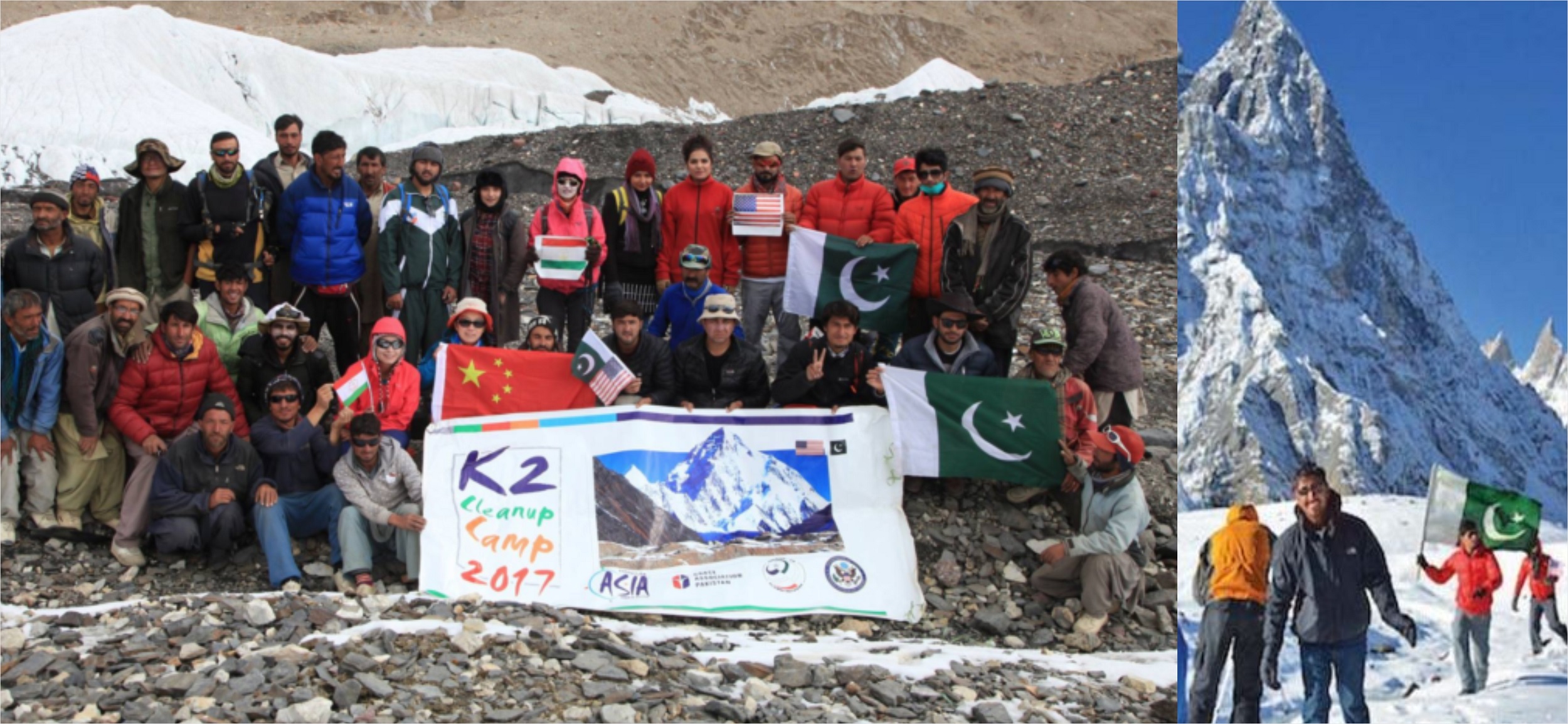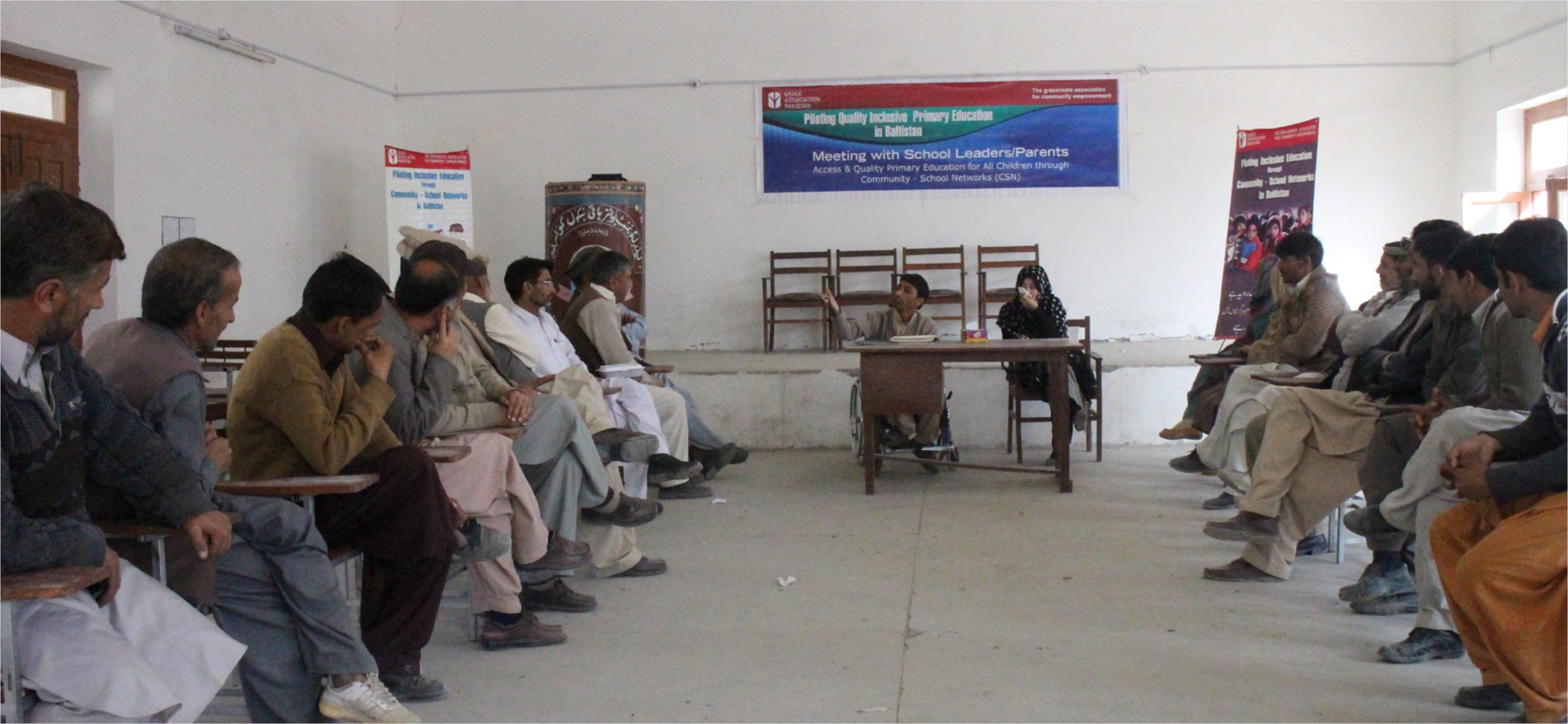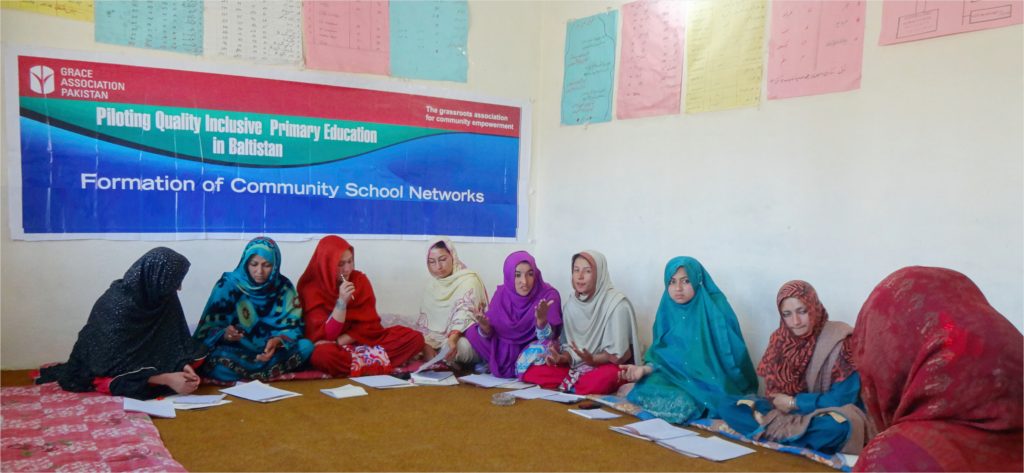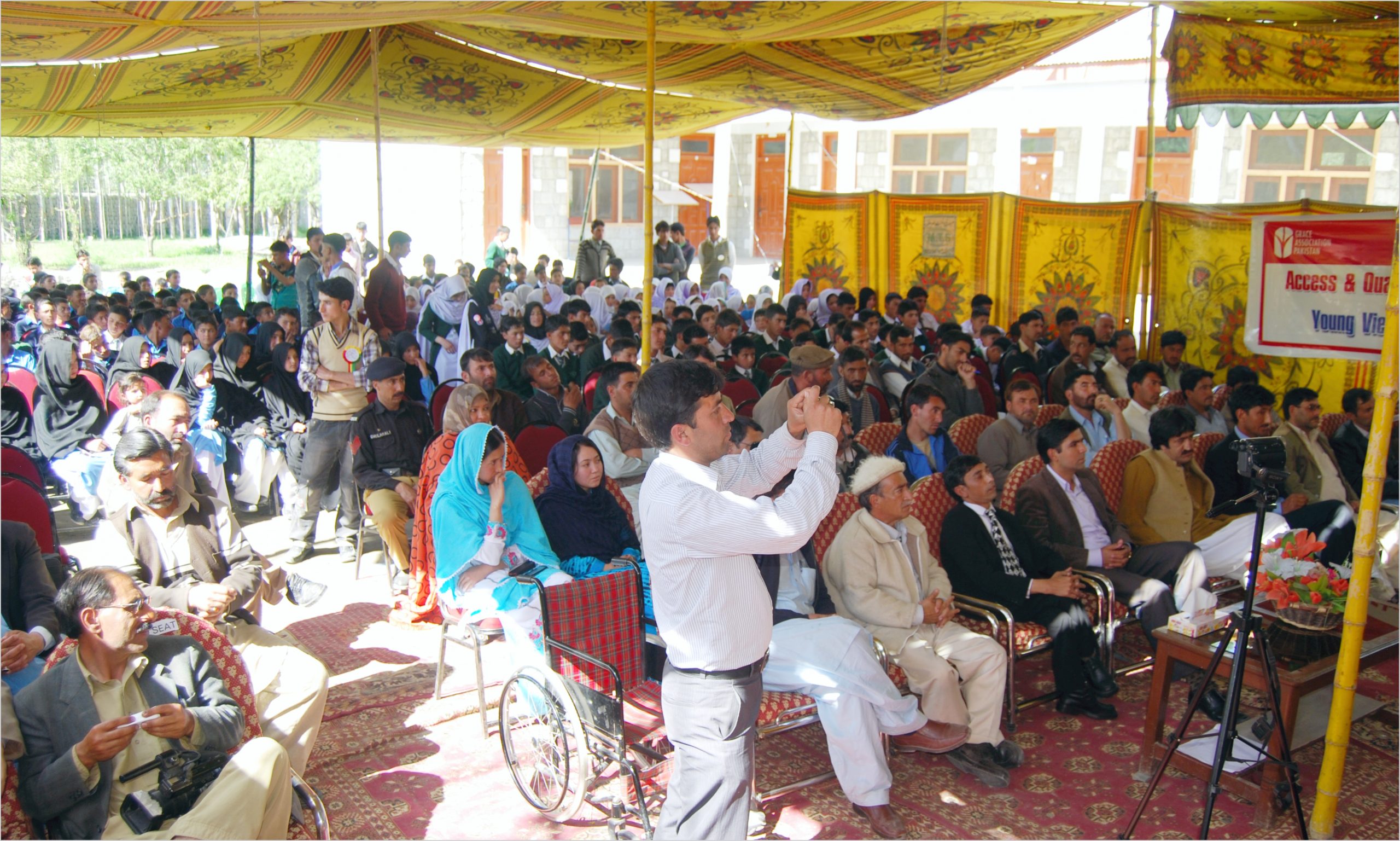ABOUT US
We are the leaders of sustainable community development in Baltistan Region of the Gilgit Baltistan Province of Pakistan. GRACE Association Pakistan is the pioneer of girls education in the most deprived pockets of the region. For more than a decade we are challenging the vulnerabilities of disable children and youth. We have changed lives of thousands of economically deprived women in the region. And now GRACE has demonstrated capacity to act as change agent and transform the society through empowering the most vulnerable masses and individuals anywhere in Pakistan now.
WHO WE WORK FOR
Our target group includes girls and boys, children, adolescents and people with disabilities in Pakistan.
WHERE WE WORK
Our geographic targets includes ———–villages of the GB Province of Pakistan and now we are expanding our outreach to other parts of the country.
WHAT WE STAND FOR
We visualize and continuously strive to optimize the socioeconomic aspirations of marginalized and economically vulnerable communities for a prosperous and peaceful society.
HOW WOULD WE DO IT
We empower and improve the lives of deserving communities in vulnerable areas of Pakistan through research and innovation, participation, partnerships and policy advocacy for promotion of sustainable solutions.
WHAT WOULD GUIDE US
A set of core values, strategic principles and strategic interventions will guide us through our program planning, organizational development and operations management.
CORE VALUES
Social justice and equity (rights, vulnerability, and access) and democracy (participation, transparency, accountability and rules and regulations) are two core values of the organization underpinning institutional norms and programmatic operations. The first value deals with the rights, vulnerability and access issues facing target beneficiaries while the second defines organizational perspective on participation, transparency, accountability and rules and regulations etc.
STRATEGIC FRAMEWORK
I. Social Mobilisation
Social mobilization has been instrumental in moving rural people from beneficiary to partner status. Under this approach GRACE has set precedence in motivating communities to invest their human, physical and financial resources for leading sustained development. This type of social mobilization is the trade-mark of GRACE’s programmes.
- Strategic Principles (SPs): GRACE has dynamically adopted five core strategic principles of social mobilization, volunteerism, advocacy, human rights and partnership building and networking to guide the implementation of the five year strategic plan of the organization.
- Strategic Interventions: GRACE has adopted key strategic interventions of Education and awareness, human and institutional development, equitable community development, gender and diversity empowerment, participatory planning and implementation, and local resource mobilization.
II. Voluntarism
Developed and managed by a cadre of community volunteers GRACE programs have practically demonstrated and inculcated the concept of volunteerism across the board. Apart from local volunteer development, GRACE has built strong linkages with national and international volunteers to increase benefits to its communities without increasing organizations overhead costs.
III. Advocacy
This principle guides the organization in continuous lobbying and advocacy with development partners, public sector line departments, political representatives, media, academia and clergy with a view to fulfilling community needs and the promotion of human rights.
IV. Human Rights
Being fundamental ethical value of the organization too this principle helps endeavour to protect human rights of indigenous/ethnic communities particularly children’s rights to education and enhanced access to quality education. It guides future programs to mainstream the development of deprived and socially excluded groups.
V. Partnership Building and Networking
This principle is inevitably important to ensure sustainable interventions through enhanced efficiency and effectiveness of programs and external synergies. It promotes accountability, transparency, quick dissemination of results and replication. GRACE identifies areas of collaboration with National and International Organizations, seeks partnerships with the UN and endeavors to mobilize resources from institutional donors by aligning objectives and results.
VI. Education and Awareness
GRACE works with communities with low or no literacy and with negligible access to information, skills and knowledge. The majority of Pakistani society is little aware of their fundamental rights and responsibilities. Similarly larger populations lack access to knowledge and technology for caring their environment and safeguarding sustainable development. Education and awareness is therefore essential part of all development programs of the organization.
VII. Human & Institutional Development
Human and institutional development is fundamental to ensure that sector investment is efficient and intervention is self-sustainable. It is GRACE policy to implement all projects with the partnership of CBOs for sustainability. Transparent and accountable local institutions can more actively mobilize local resources vis-à-vis ensure their effective and efficient deployment. Community mobilization and organization and enhanced capacity development of partners is importantly integrated in the development programs.
VIII. Inclusive Empowerment
Variety of vulnerable groups i.e. children, adolescents/youth, girls, women and disable persons constitute GRACE target groups. Their needs and challenges cannot be addressed without their consideration and mainstreaming in program planning and management for results. To ensure inclusive empowerment GRACE particularly focuses on equitable community development and gender and diversity empowerment.
X. Participatory Research and Development
PR&D keeps the motivational level of the communities with ever changing needs, challenges and opportunities very high. GRACE emphasizes upon community owned research and encouraging the active participation of key stakeholders in the design and implementation of projects. GRACE has for years tested this approach in Gilgit – Baltistan ready for extension to other parts of the country.
WHAT WE AIM TO ACHIEVE
- Promote early childhood care and development, quality inclusive girl education through secondary and beyond in disadvantaged grassroots communities;
- Strengthen human and institutional development through awareness raising, capacity building training, partnerships building and networking;
- Enhance access of poor and disadvantage communities to safe drinking water and sanitation, irrigation water, English language programs, youth skills enhancement initiatives and livelihood opportunities;
- Introduce sustainable models of community-based climate change mitigation and adaptation projects in rural villages;
- Support people affected by disasters and conflict situations through rescue, relief, rehabilitation and reconstruction initiatives.
Overall purpose is to improve living conditions of people suffering from poverty, ignorance and illiteracy at the grassroots level – empowering them to access economic development opportunities and providing new generations with knowledge and skills they need to thrive in life.
WHY SHOULD YOU SUPPORT GRACE!
GRACE adds 200% value to the charity it receives. So far GRACE has changed and improved lives of almost 200,000 individuals; children (25%), youth (30%) women (25%) and men (20%) from the most disadvantaged, vulnerable and marginalized communities in Gilgit-Baltistan and rural villages in Islamabad and Rawalpindi. This has been done with the total meager investment of only 1,350,000 USD. The total per capita cash spending stands equal to USD 6.78 which is quite competitive. If parallel community based in kind investment is also calculated even then per person spending remains below USD 15. It reveals GRACE demonstrated capacity of making larger impact by optimizing investment and its institutional strength to ensure effective use of aid.
WHY PARTNER WITH GRACE
GRACE Association Pakistan is fully capable of impacting the lives of masses and individuals which guarantees peace and prosperity in the society. GACE is highly innovative in its approach and leads by example. It incubates and matures best practices which result in the empowerment, self-reliance and self-esteem of its target group.
GRACE interfaces its programs with ongoing larger programs at national level for learning and complementarities and aligns its outcomes and results with National and International Organizations for collaboration and partnership. GRACE niche is in synch with the Prime Minister’s statement regarding uplifting of most vulnerable and deprived populations.
GRACE works in close partnership with government and other stakeholders for sustainability of its programs. Policy advocacy is main vehicle for mainstreaming GRACE target groups in governments’ policies and programs.
HERE ARE THE BIG IMPACTS
The most prominent impact it has brought reflects in changing mindset of target communities regarding girl education. In rural villages where girls were treated as others property, now claim their social and cultural rights. Tangible reduction in early child marriages and early child bearing can be observed. Empowered women can go for higher education abroad while they were not allowed to travel alone to neighboring villages. People with disabilities are remarkably empowered. GRACE made a hammer in the peoples’ perception about the disable persons. GRACE Founder is polio affected disabled person who now stands amongst one of the most dynamic and useful members of the society benefitting and empowering 10s of 100s of adolescent girls and boys to become social and economic leaders. Particularly people living with disabilities are no more considered a burden and are now much respected and valued in the society.
GRACE’s intervention such as English and employability skills development program for adolescents developing 21st century employability skills is resulting in mainstreaming youth in the employment market as skilled workforce. GRACE community-based climate change mitigation technology has resulted in the promotion of underground water exploration and utilization of water for irrigation of orchards and forests. A trend of reforestation started which actually could not be done due to water scarcity in the past. This idea is replicated in three valleys of Baltistan region. In addition, GRACE is collaborating with UNDP and University of Baltistan for Glacier Grafting in villages where scarcity of water is the biggest challenge to promote agriculture and forestry.
Lastly, GRACE sustains resistance for change as its story is all about change; it brought change in the lives of its target groups by empowering the most vulnerable groups of the society. Groups of people with status quo resist change but GRACE efforts break those barriers of resistance for change. The lessons learned are replicated and beneficiaries are trained to sustain change in the community.
GRACE work with UN Online Volunteers to overcome its human resource problem has impacted Pakistan’s soft image at global level. A volunteer of GRACE from USA wrote her travel story for the United Nations Online Volunteers blog (www.unv.org/our-stories) She wrote, “I realised the media had painted an inaccurate picture of Pakistan, and Americans would continue to believe these inaccuracies if they had no access to real information”. This kind of reflection add Pakistan’s soft image globally and help promote tourism in Pakistan.
WHAT DO WE DO?
GRACE has prioritized following three programs for the five year strategic plan.
1. Quality Education;
2. Skills Enhancement and Employment
3. Environment and Climate Change
WHY THESE PROGRAMS
These areas are strongly linked to the Government’s Vision 2030 and the UN SDGs particularly SDG 1: end poverty, 4: quality education, 5: gender equality, 7: affordable and clean energy, 8: decent work and economic growth, 10: reduced inequalities, 13: climate action and 16: peace, justice and strong institutions.
These Priority programs appreciate other International instruments inter alia; Convention on the Right of Child, UN Declaration on Human Rights, UN Convention on the Rights of Persons with Disability and UN Convention on Climate Change etc.




